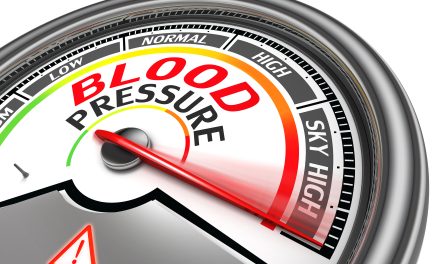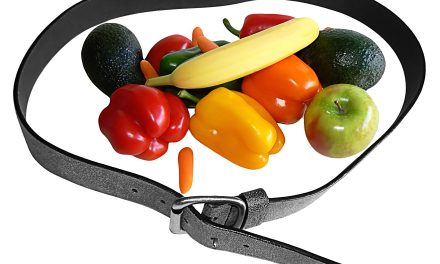Losing weight often feels like an uphill battle for many. The main reason weight loss is hard is due to a combination of biological, psychological, and lifestyle factors.
Individuals face unique challenges that make shedding pounds a complex task.
Exploring these elements can highlight why so many people struggle with achieving and maintaining their desired weight.
One significant barrier in weight loss is the body’s tendency to resist change.
The body is designed to hold on to energy reserves, often making it difficult for dieters to lose weight and keep it off.
Behaviors, emotions, and external pressures can further complicate efforts, as emotional eating or lack of physical activity can derail progress.
To make headway in weight loss, it’s important to incorporate sustainable dietary strategies and consistent physical activity.
Recognizing and understanding potential plateaus or setbacks can help individuals craft better plans tailored to their needs.
Successful weight loss involves both immediate actions and long-term strategies that promote overall health.
Key Takeaways
- Biological and lifestyle factors complicate weight loss.
- The body naturally resists losing energy reserves.
- Sustainable plans and consistent actions aid success.
Understanding Weight Loss
Weight loss involves multiple factors, from the body’s metabolism to individual lifestyle choices. It’s a complex process influenced by both biological and behavioral elements.
The Science of Weight Loss
Understanding the science behind weight loss involves looking at how the body uses energy. Metabolism plays a critical role here. It is the process by which the body converts food into energy.
When calorie intake is less than the energy burned through daily activities and physical activity, weight loss can occur.
Various factors affect the body’s ability to lose weight, such as hormonal changes and genetics. Hormones like insulin and ghrelin control hunger and weight gain. Genetics can influence metabolism speed, affecting how quickly a person loses weight.
Obesity is a condition where weight loss becomes more challenging due to these factors.
Physical activity is an essential component, because it helps increase muscle mass and burn calories. When combined with a balanced diet, it creates an environment for the body to shed extra weight.
Factors Affecting Metabolism
Metabolism is affected by several elements, including age, muscle mass, and genetics.
As a person ages, metabolism tends to slow down, which can lead to weight gain unless calorie intake is adjusted.
Muscle mass is also crucial. More muscle mass generally means a higher metabolism, as muscles require more energy to maintain than fat. Therefore, weight training can be an effective way to boost metabolism.
Genetics can greatly influence how a person’s metabolism functions. Some people might have a naturally faster or slower metabolic rate, which can impact weight loss efforts.
Additionally, lifestyle factors like diet quality and physical activity levels play significant roles in how efficiently the body burns calories and maintains energy balance.
Challenges in Losing Weight
Losing weight involves various challenges that can be difficult to overcome. These challenges often stem from both biological and psychological factors that can make weight loss seem nearly impossible at times.
Biological Factors
Biological factors play a major role in weight loss difficulties. Hormones such as leptin influence appetite and energy balance. Low leptin levels can increase hunger, making it harder to control eating.
People with conditions like hypothyroidism may experience a slow metabolism, making weight loss challenging. Hormonal changes during life events also affect weight by influencing how the body stores and uses energy.
A weight loss plateau is another common issue. Initially, losing pounds might be quick. Over time, the body adjusts, making further loss slower. Medical conditions and genes also contribute to the difficulty, affecting how one’s body responds to diet and exercise.
Psychological Barriers
Psychological barriers often hinder weight loss. Stress and mental health issues such as depression can lead to emotional eating, where food becomes a source of comfort.
People struggling with motivation may find it hard to maintain healthy habits over time. Eating disorders and negative body image issues contribute, making it difficult to pursue a healthy lifestyle.
Coping mechanisms like emotional eating often emerge from psychological stress or trauma.
It’s important to address these mental barriers, as they significantly impact the capability to achieve and maintain weight loss goals.
Dietary Strategies for Weight Loss
A healthier diet is essential for losing weight. It often involves identifying current eating habits and replacing them with healthier options. This may include cutting back on processed foods and focusing on more fruits, vegetables, and lean protein.
Assessing Your Diet
Assessing one’s diet is the first step in making effective changes. It involves keeping a detailed food journal to note everything eaten throughout the day. This helps in identifying which high-calorie foods frequently make their way into meals.
Identifying patterns of late-night snacking or excessive consumption of processed foods can also provide insights.
Next, it is important to compare current eating habits with recommended dietary guidelines. Ensuring the inclusion of a variety of food groups such as fruits, vegetables, and lean proteins is crucial. This helps highlight areas needing change.
Getting nutrients from whole foods rather than supplements is often more beneficial. Aiming to limit foods high in added sugars and unhealthy fats supports a healthier balance.
Implementing Healthy Eating
With an understanding of current eating habits, the next step is to implement healthy strategies.
Portion control is key, as it helps limit calorie intake while still allowing some flexibility in food choices.
Focusing on foods rich in nutrients, such as fruits, vegetables, and lean proteins, provides both energy and nourishment. Vegetables and fruits should take up a considerable portion of daily meals.
Lean proteins like chicken and fish are preferred over red or processed meats.
Considering structured approaches like intermittent fasting can aid weight management. This involves eating within specific time frames and can naturally reduce calorie intake.
Regularly planning meals can prevent impulse eating and help maintain focus on dietary goals. With preparation, it becomes easier to stick to healthier choices and avoid high-calorie fast food and snacks.
The Role of Physical Activity
Exercise plays a crucial role in losing weight and maintaining overall health. It helps create a calorie deficit and supports muscle growth, making it an essential part of any weight loss journey.
Benefits of Exercise
Physical activity is essential for losing weight because it enhances calorie burning. When combined with a healthy diet, it helps create a calorie deficit, necessary for weight loss.
Regular exercise improves cardiovascular health, boosts mood, and increases energy levels.
Exercise also increases muscle mass, which is important for maintaining a healthy metabolism. More muscle mass helps burn calories even at rest.
In addition to weight control, regular physical activity reduces the risk of chronic diseases like diabetes and heart disease.
Thus, engaging in exercises such as walking, cycling, and strength training can lead to better physical and mental health.
Building a Workout Routine
Creating a balanced workout routine is key for effective weight loss. A good routine often includes a mix of cardiovascular exercises, like running or swimming, and resistance training.
Resistance training is vital for building lean muscle mass, which aids in weight management. Starting with two or three days a week is beneficial for beginners.
As fitness levels improve, gradually increasing the frequency and intensity of workouts can enhance progress.
Integrating activities that one enjoys makes it easier to stick to a routine.
It’s also important to allow time for recovery.
By maintaining a consistent and enjoyable workout schedule, individuals can effectively support their weight loss goals and improve overall well-being.
Understanding and Overcoming Plateaus
A weight loss plateau occurs when progress stalls despite continued efforts with dieting and exercise. Learning to identify when a plateau has been reached and having strategies to break through it are key to continued success. Changes in metabolic rate and calorie intake might be necessary.
Identifying a Plateau
A weight loss plateau is often noticeable after steady weight loss suddenly stops for several weeks. This can happen even if they maintain the same diet and exercise routine.
It’s important to track weight, food intake, and physical activity to determine if a plateau is the issue.
Metabolic rate might slow as the body adjusts to a lower weight, leading to fewer calories being burned during rest. Monitoring this helps in identifying if a plateau isn’t just a minor fluctuation but a more prolonged stalling period.
Recognizing patterns in food intake and weight fluctuation aids in determining if a true plateau has been reached.
Strategies to Break Through
Breaking through a plateau requires a change in approach.
Adjusting calorie intake slightly, whether increasing or decreasing based on needs, can help stimulate weight loss again.
Introducing new exercises or increasing the intensity can also boost metabolic rate, burning more calories.
Implementing a change in the type of nutrients consumed—such as increasing protein intake—may also assist in overcoming a plateau.
Using tools to track progress helps in maintaining accountability.
Perseverance is crucial, as anyone facing a plateau needs patience and consistency to push past this phase.
Managing Health and Medical Conditions
When managing health and medical conditions, it’s important to understand how they can affect weight loss efforts. For individuals dealing with conditions like diabetes, heart disease, or hormonal disorders, weight management can become more challenging. Careful consideration and personalized strategies are often necessary.
Influence of Existing Conditions
Medical conditions such as diabetes and heart disease can significantly impact weight management.
Diabetes affects how the body processes blood sugar, making weight loss more complex. Those with reduced insulin sensitivity may find it harder to lose weight.
Hormonal changes, such as those caused by hypothyroidism or polycystic ovary syndrome (PCOS), can also slow metabolism and lead to weight gain.
These conditions require medical intervention alongside diet and exercise to effectively manage weight. Understanding these influences helps tailor better health strategies.
Balancing Weight Loss and Health Care
Balancing weight loss and other health care needs involves coordination between lifestyle changes and medical treatments.
Patients with obesity may need to work closely with health professionals to ensure weight loss plans do not conflict with treatments for conditions like heart disease or diabetes.
For example, managing blood sugar levels is crucial for those with diabetes, which might be affected by dietary adjustments.
Achieving a balance allows individuals to address their health conditions effectively and pursue their weight loss goals.
Personalized plans and regular check-ups can support this balance and lead to better outcomes in both health and weight management.
Sustaining Weight Loss Long-Term
Maintaining weight loss is often challenging. It requires not just lifestyle changes but also emotional adjustments. People face issues like weight regain, which can undermine their motivation and determination.
Building Lasting Habits
Creating lasting habits is vital for sustained weight loss.
It’s not just about eating healthy foods but making these choices a part of everyday life. For example, incorporating fruits and vegetables in each meal can support a healthy diet.
Establishing regular exercise routines, like daily walks or gym sessions, builds consistency.
A support network can boost motivation by keeping individuals accountable. Friends or support groups encourage healthier choices.
Tracking progress through a journal or app can help individuals see improvements over time, reinforcing positive habits.
Dealing with Weight Regain
Weight regain is common and can be discouraging. Understanding it as a normal part of the journey helps maintain determination.
Recognizing triggers that cause weight gain, like stress or unhealthy eating patterns, is crucial.
Addressing these triggers through constructive methods, like stress management techniques or meal planning, is essential.
Implementing gradual lifestyle changes aids in stabilizing weight.
Reading about long-term weight loss successes, like those in successful weight loss maintenance, can offer guidance on overcoming setbacks.
Frequently Asked Questions
Many people find losing weight challenging due to various factors, including physical, hormonal, and lifestyle influences. Aging, gender differences, and specific body areas add complexity to this journey. Strategies to overcome these barriers can help, but they require understanding the underlying issues.
Why do some people struggle to lose weight despite diet and exercise?
Individuals may face difficulty losing weight even when following diet and exercise plans. This struggle can stem from factors like metabolic rates, hormonal imbalances, or insufficient calorie deficits. Psychological factors, such as stress and emotional eating, can also contribute.
What factors contribute to weight loss becoming more difficult as one ages?
As people age, their metabolism tends to slow down, leading to fewer calories burned. Muscle mass decreases, and lifestyle changes, such as less physical activity, can add challenges. Hormonal changes also play a significant role in making weight management harder.
Why is it challenging to maintain weight loss after reaching a certain age?
Maintaining weight loss can become harder with age due to a combination of slower metabolism and hormonal changes.
Older adults may also experience more sedentary lifestyles due to retirement or health issues, which hinders their ability to keep weight off long-term.
What are the reasons for weight loss being particularly tough for women?
Weight loss can be more challenging for women due to hormonal differences, especially related to factors like menstruation, pregnancy, and menopause.
These hormonal fluctuations can influence body fat distribution and cravings, making weight management more complex.
Why can shedding belly fat be a difficult task?
Belly fat is often stubborn due to its response to hormones such as cortisol and insulin.
It is affected by factors like diet, stress, and sleep patterns. It usually requires a comprehensive approach, including diet changes and targeted exercise, to effectively address.
How can individuals overcome a plateau in their weight loss journey?
Overcoming a weight loss plateau often involves evaluating current habits and making changes.
Adjustments may include changing the exercise routine, modifying caloric intake, or increasing activity levels.
Staying hydrated and managing stress can also help push through a plateau.



















